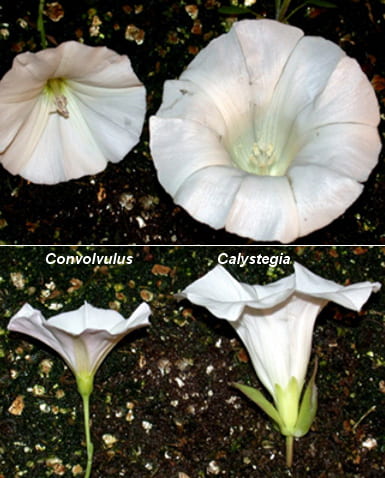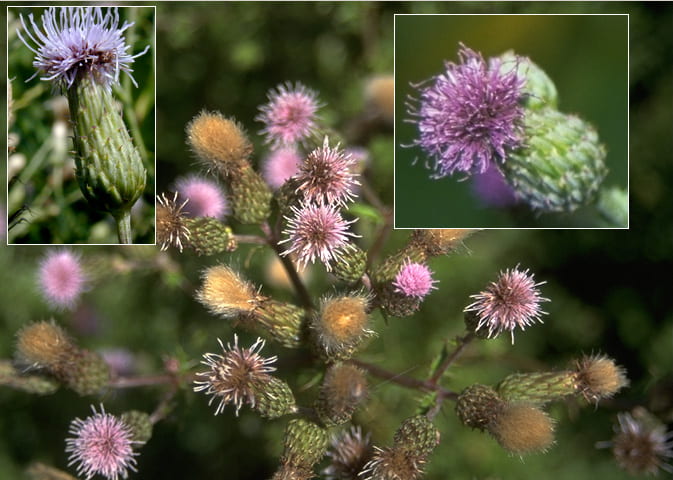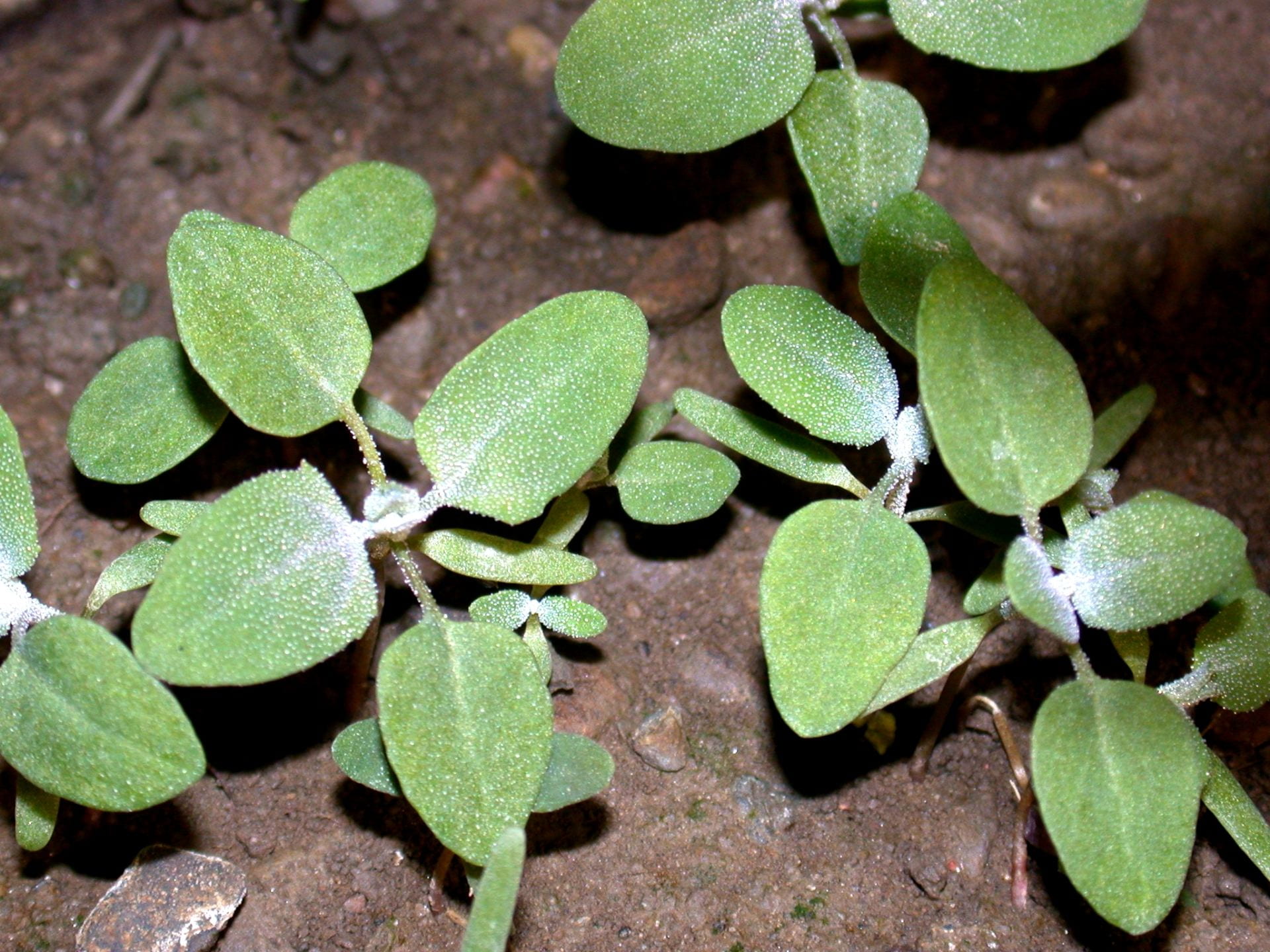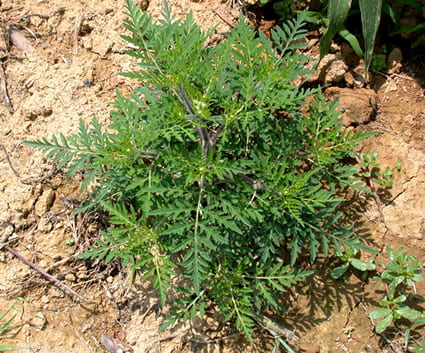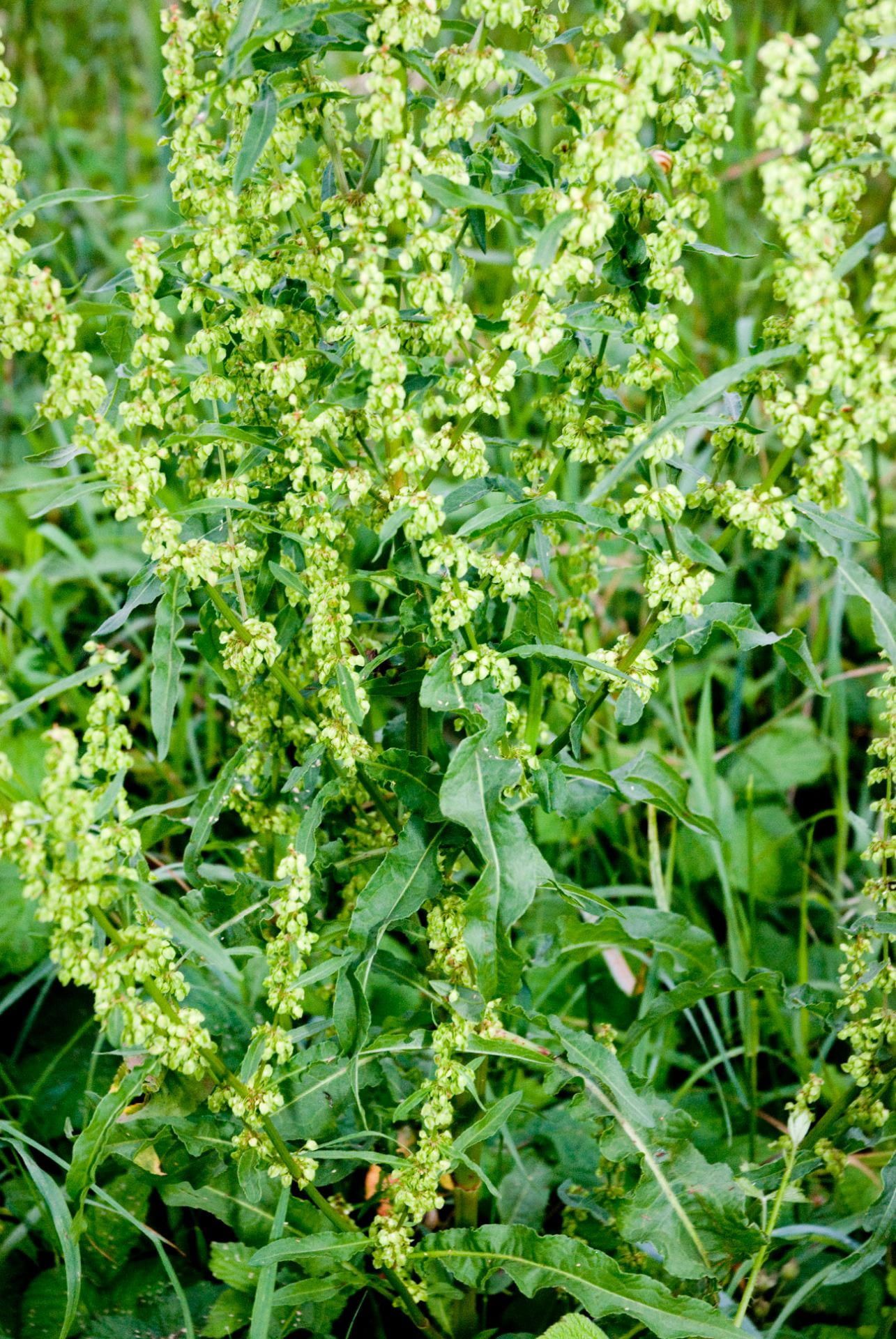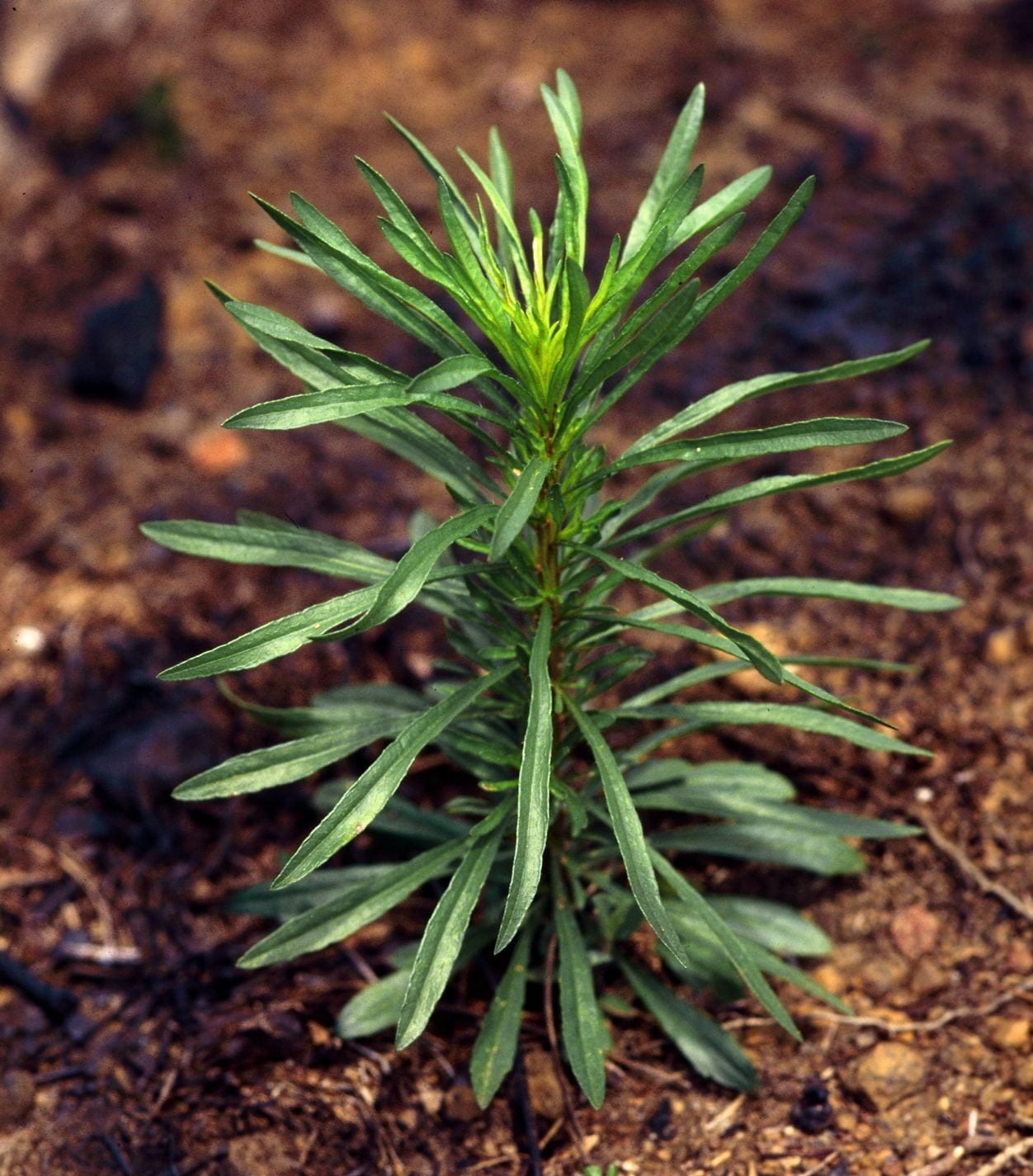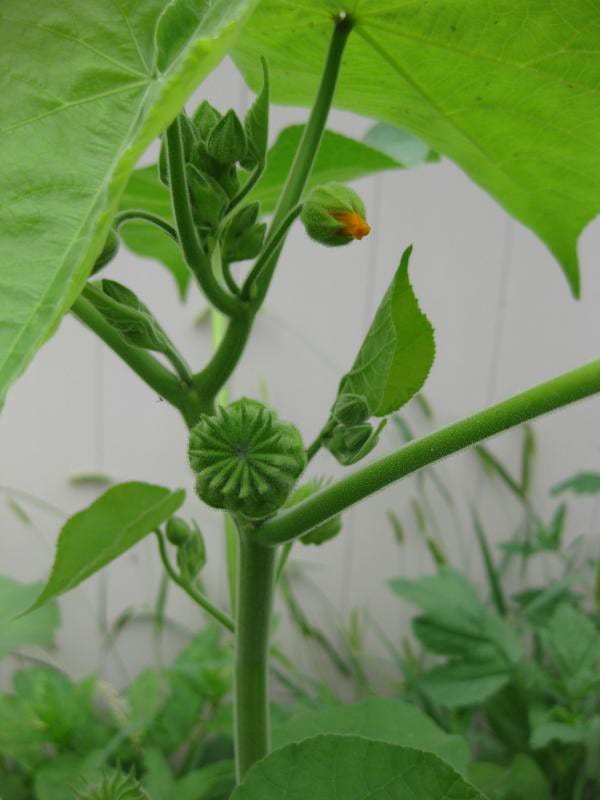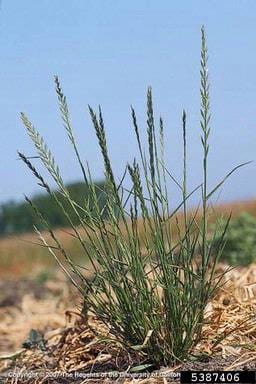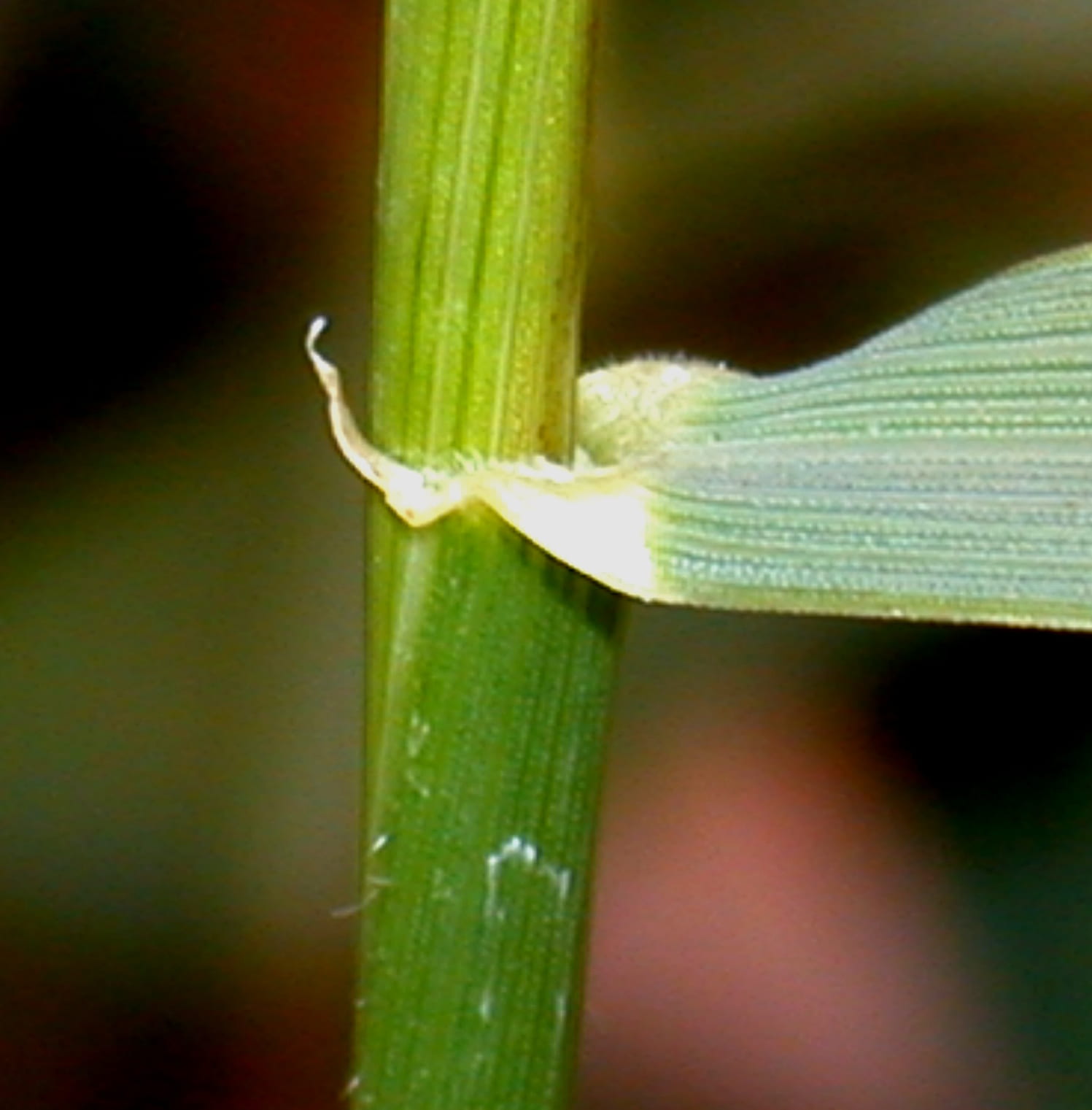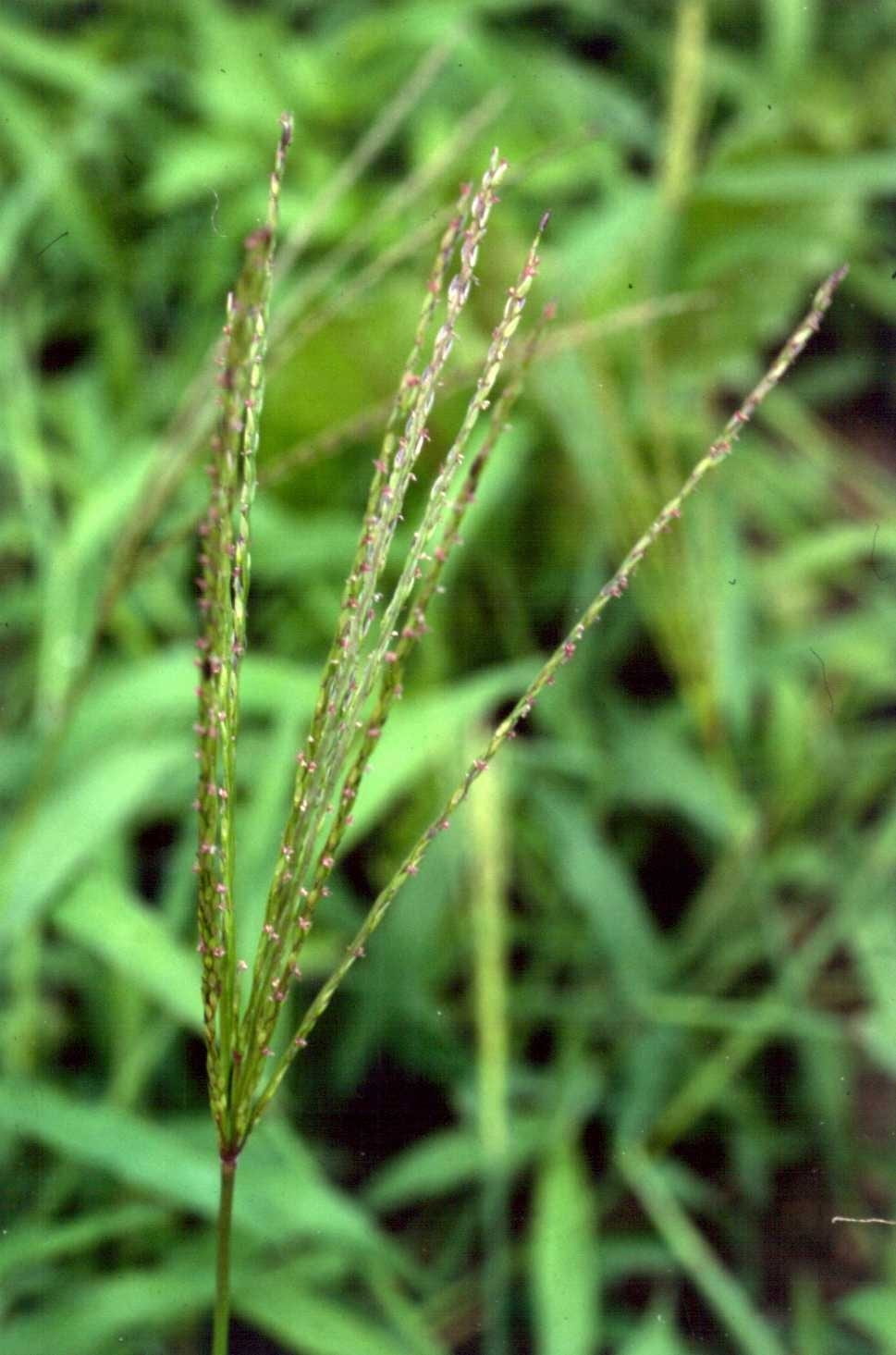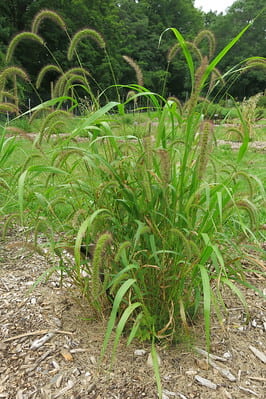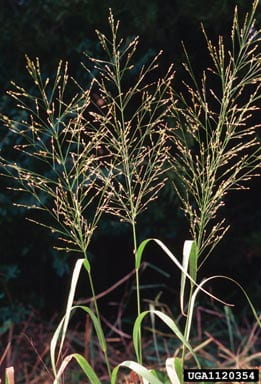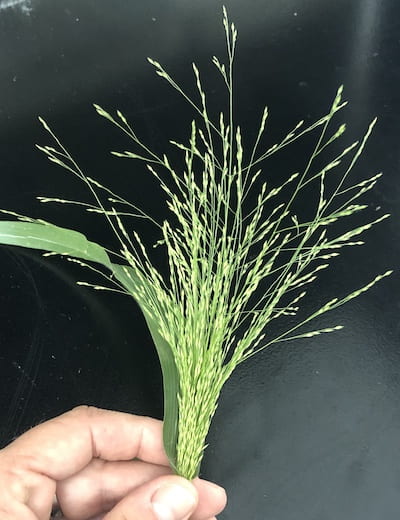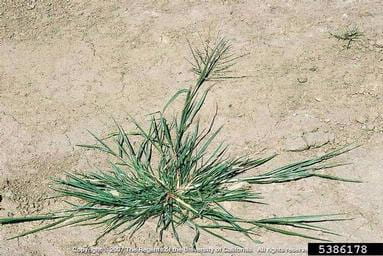Problem Weeds
Species photos below link to species specific pages for identification and management many problematic weeds. The text section after these species below provides links to other problem species available from extension services around the US.
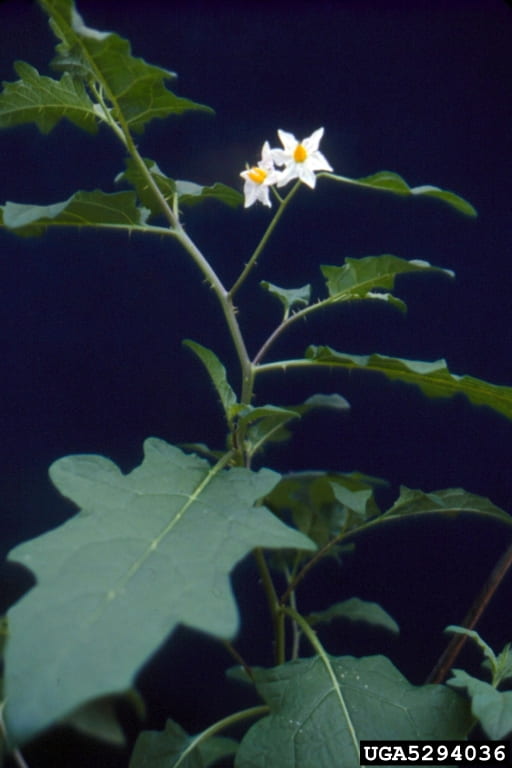
Horsenettle (Solanum carolinense)
Perennial ryegrass (Lolium perenne)
Fall panicum (Panicum dichotomiflorum):
Identification guide by University of Missouri’s Division of Plant Sciences: https://weedid.missouri.edu/weedinfo.cfm?weed_id=197
Conventional management information provided by Cornell University:
https://turfweeds.cals.cornell.edu/plant/fall-panicum
Hemp dogbane (Apocynum cannabinum):
Identification guide by the Virginia Cooperative Extension: https://www.pubs.ext.vt.edu/450/450-140/450-140.html
Conventional management information provided by Virginia Cooperative Extension: https://www.pubs.ext.vt.edu/content/dam/pubs_ext_vt_edu/450/450-140/450-140_pdf.pdf
Non-chemical management provided by Farms.com: https://www.farms.com/field-guide/weed-management/hemp-dogbane.aspx
Tall waterhemp (Amaranthus tuberculatus):
Identification guide by Cornell University.
Information on cover crops for waterhemp management provided by Practical Farmers of Iowa.
Additional Common Weeds
Common milkweed (Asclepias syriaca): Perennial weed that is toxic to livestock, although it is not commonly consumed unless animals are in overgrazed pasture or otherwise short on food resources. Milkweed is also a critical food resource for monarch butterflies, and is becoming scarce in agricultural regions. Iowa State University has a milkweed identification resource, and Washington State University’s Whatman County extension has information on milkweed management.
Eastern bluegrass
Galinsoga
Hairy nightshade
Crabgrasses

